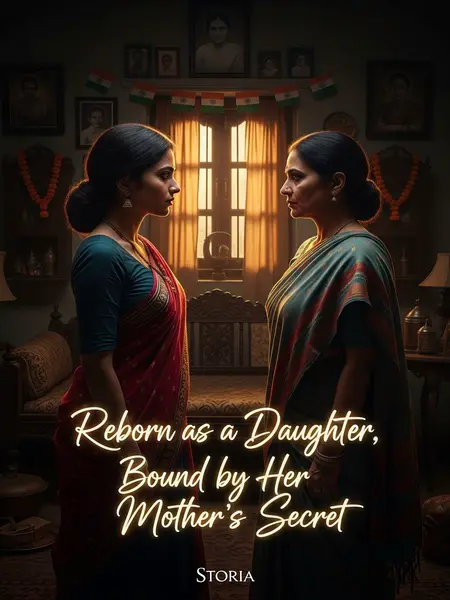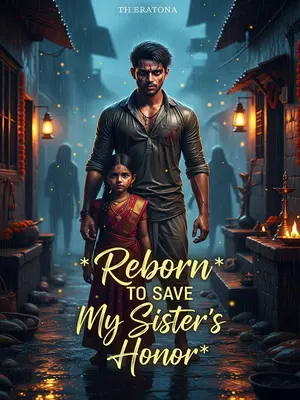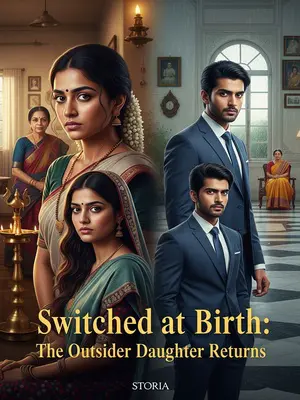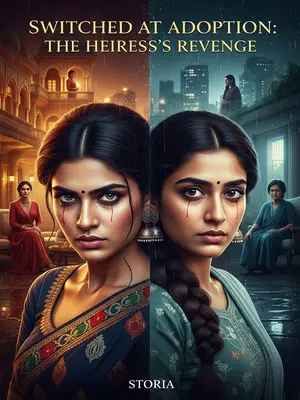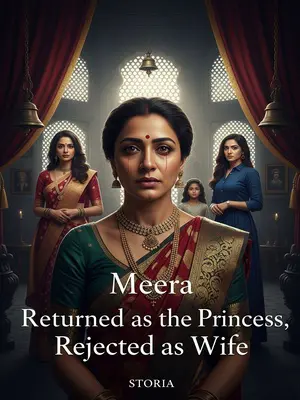Chapter 8: Across the Divide
But that scene never happened.
The dream of recognition shattered in a heartbeat. My mother just looked at me, her face blank with confusion. The moment stretched, heavy and awkward. My stomach twisted like before an exam result.
My mother’s almond-shaped eyes widened in confusion: “Ji… ji what?”
She repeated the words, her brow furrowing, as if I had spoken in some strange tongue. The anticipation in my chest curdled into embarrassment.
I was stunned too.
I felt as if the ground had slipped beneath my feet. I searched her face for a sign—anything. But there was only confusion. My hopes deflated like a punctured football.
What’s going on?
I wanted to laugh at myself—how could I be so foolish? The silence grew, pressing on my ears.
The secret code doesn’t work?
Had I gotten it wrong? Was this all just a coincidence? I bit my lip, feeling a blush crawl up my neck. I tried to recover, but my hands trembled.
I didn’t let go of my mother’s hand—if anything, I gripped it tighter.
I squeezed her fingers, desperate for some sign. My mind spun, searching for a way to bridge the gap. The fan whirred overhead, and the shadows on the wall seemed to dance.
“Mother, you’re reborn too, aren’t you? From modern times?”
The question burst out of me, raw and urgent. My mother’s lips parted, her eyes darted away for a moment, as if hiding something. I held my breath.
At these words, my mother’s expression shifted.
Her eyes grew distant, clouded with something old and painful. A memory flickered in their depths, and for a moment, she seemed a thousand years away. My heart leapt in hope.
After a moment, she sighed softly. “Reborn… that’s a fitting description.”
Her voice was low, almost a whisper. There was a weight in her words, as if she was unburdening herself after years of silence.
“It’s just, modern times…?”
She trailed off, her voice hesitant. I realised then that our timelines might not match, that her ‘modern’ might not be the same as mine. Still, a strange kinship stirred between us.
Now it was my turn to widen my eyes. “Mother, which year did you come from?”
My breath caught, the room holding its breath with me.
“1940.” She watched my reaction, then added, “The 29th year of the Indian National Congress movement. And you?”
She said it with a calmness that belied the storm in her eyes. I sat stunned, the gap between us suddenly so vast, yet oddly familiar.
I was silent for a long time.
A hundred questions buzzed in my mind, but I couldn’t form words. My hands grew cold. The old world and the new—so far apart, yet here we were, mother and daughter, linked by fate.
“I came from 2023. From New India.”
The words felt strange on my tongue, as if I was declaring a prophecy. I watched her face for any sign of recognition.
A wind seemed to sweep through the hall, carrying with it a hundred years of history from the old era.
The curtains fluttered, and the flame of the oil lamp danced. It was as if the air itself was charged with the weight of time, centuries passing between our breaths. My heart thudded in my chest.
It circled my mother’s temples, then brushed across my brow.
Her hair stirred, and I felt a coolness on my own skin. I almost believed that the ancestors themselves were listening, watching this meeting unfold.
My mother’s almond eyes grew even wider, her hands trembling after a long pause.
She looked at me with a longing I couldn’t understand, her fingers tightening around mine. Tears shone in her eyes, and I felt my own vision blur.
Her voice shook as well.
She tried to speak, but her words caught in her throat. The silence was filled with all the things we both wanted to say.
“2023? Th-that…?”
She stammered, the number tasting strange in her mouth. She stared at me, as if trying to read the truth in my face.
I knew what she wanted to ask, and my throat tightened too.
I could see the hope, the fear, the disbelief warring inside her. My own voice threatened to fail me, but I swallowed and spoke.
I looked her in the eyes and answered, word by word:
“The rivers still flow, and the nation is peaceful and prosperous.”
I said it with a quiet pride, willing her to believe. The words seemed to settle in the room like a benediction.
My mother was dazed, a complex emotion flashing in her eyes.
A mixture of joy, grief, relief, and disbelief tumbled across her face. She looked both young and impossibly old in that moment.
She suddenly seized my arms, her face full of urgency and hope.
She leaned forward, gripping my shoulders. Her nails dug into my skin, but I didn’t mind. Her breath was hot, her words rushed.
“The British?”
Her voice was a desperate whisper, as if afraid the answer would shatter her.
“Gone.”
The word echoed like a drumbeat. Her eyes grew round with wonder, and her lips parted in a silent prayer.
“Did we win?”
The question was almost childlike in its innocence. She was searching for hope, for proof that her sacrifices had not been in vain.
“Yes, we won.”
I said it firmly, my chest swelling with pride. I saw tears spring to her eyes.
“Is there still war?”
Her voice trembled. The horrors of her past still haunted her.
“No more.”
I shook my head. “No more war. India is free.”
Big tears rolled from her eyes, falling onto my hands.
They slid down her cheeks, warm and heavy, splattering on my skin. Each drop carried the weight of generations.
They were hot.
I felt my own cheeks grow wet. My heart pounded with emotion.
I felt my chest grow warm too.
Something inside me loosened, a knot of fear and longing unravelling at last.
“Is anyone still bullying us?”
The words were barely a whisper, but the pain behind them was centuries old.
“No, no one dares trouble us now, Ma. They think twice before messing with India.”
I said it with all the conviction I could muster. My mother broke into sobs, clutching me as if I was her lifeline.
